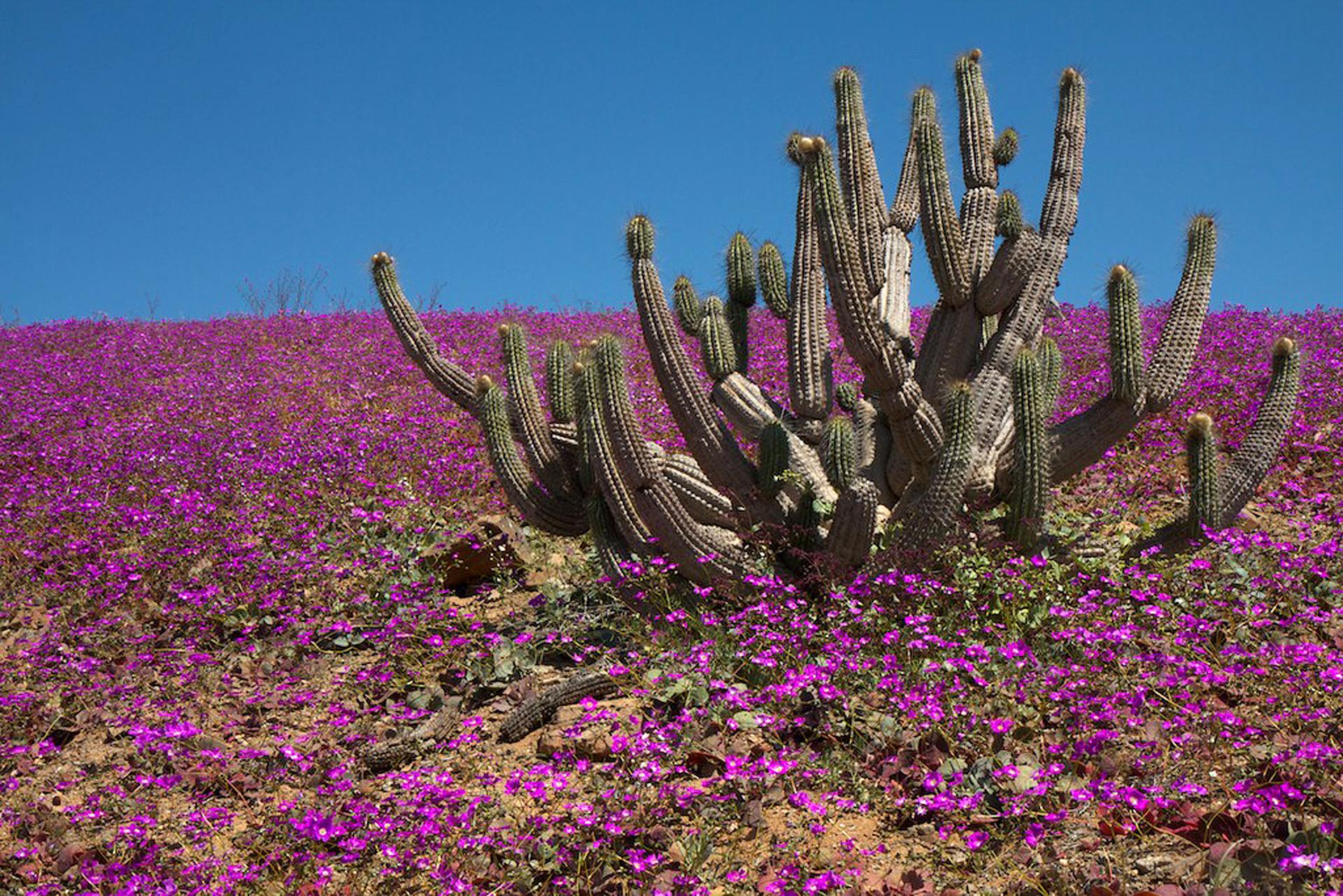El Niño covers arid Atacama desert in flowers
In 2011, too, an exceptional year of rainfall helped more than 200 species of autochthonous flowers, which don't grow elsewhere, to spread out a colorful blanket over the world's driest desert, Atacama.
Here's a softer side to the disruptive weather phenomenon known as El Niño: an enormous blanket of colorful flowers has carpeted Chile's Atacama desert, the most arid in the world.
The cyclical warming of the central Pacific may be causing droughts and floods in various parts of the world, but in the vast desert of northern Chile it has also caused a vibrant explosion of thousands of species of flowers with an intensity not seen in decades.
Yellows, reds, purples and whites have covered the normally stark landscapes of the Atacama, where temperatures top 40 degrees Celsius (104 Fahrenheit) this time of year.
From violet-and-white Chilean bell flowers, or "countryside sighs" (Nolana paradoxa), to red "lion claws" (Bomarea ovallei), to yellow Rhodophiala rhodolirion, they have filled the normally pale desert valleys with rivers of color.
"This year has been particularly special, because the amount of rainfall has made this perhaps the most spectacular of the past 40 or 50 years," said Raul Cespedes, a desert specialist at the University of Atacama.
– Sleeping beauty –
El Niño, which wreaks havoc on world weather patterns every two to seven years, has hit particularly hard this year, causing unusually heavy rainfall in the world's driest desert.
That has caused dormant flower bulbs and rhizomes — underground stems that grow horizontally — to germinate.
"When you think of the desert, you think of total dryness, but there's a latent ecosystem here just waiting for certain conditions to arise," said Cespedes.
The desert flowers are perhaps nature's consolation for what has been a devastating year for Atacama.
They first bloomed in March, after heavy rains that caught the region by surprise and caused massive floods that killed more than 30 people.
They are now blooming for the second time this year, at the outset of the southern hemisphere summer.
– Tourist drawcard –
"This is a very unusual phenomenon. Because of the floods in March there was an exceptional winter bloom, which had never before been recorded… and then there was another bloom in spring," said Daniel Diaz, director of the National Tourism Service for Atacama region.
"Two flowerings a year is very unusual in the most arid desert in the world, and that's something we've been able to enjoy this spring, along with people from all over the world. There's a lot of interest in seeing it," he told AFP.
The region has seen a 40 percent increase in tourists since the flowers began blooming.
"It is so unusual, yet so real," said British tourist Edward Zannahand, who made a special stop in Atacama on what he described as a road trip around the world.
str-pa/jhb/ec
We want to hear your feedback so we can keep improving our website, theworld.org. Please fill out this quick survey and let us know your thoughts (your answers will be anonymous). Thanks for your time!
